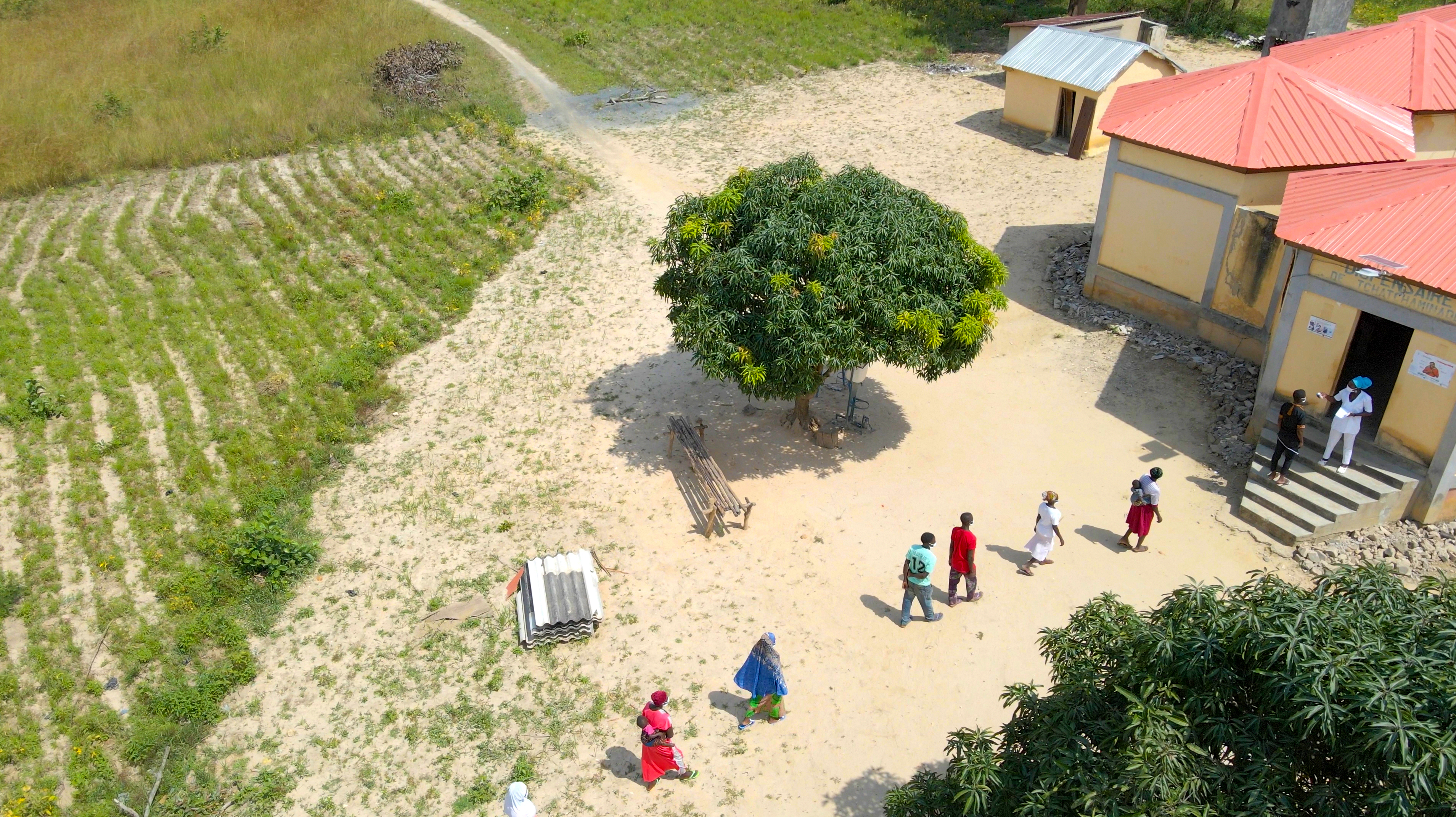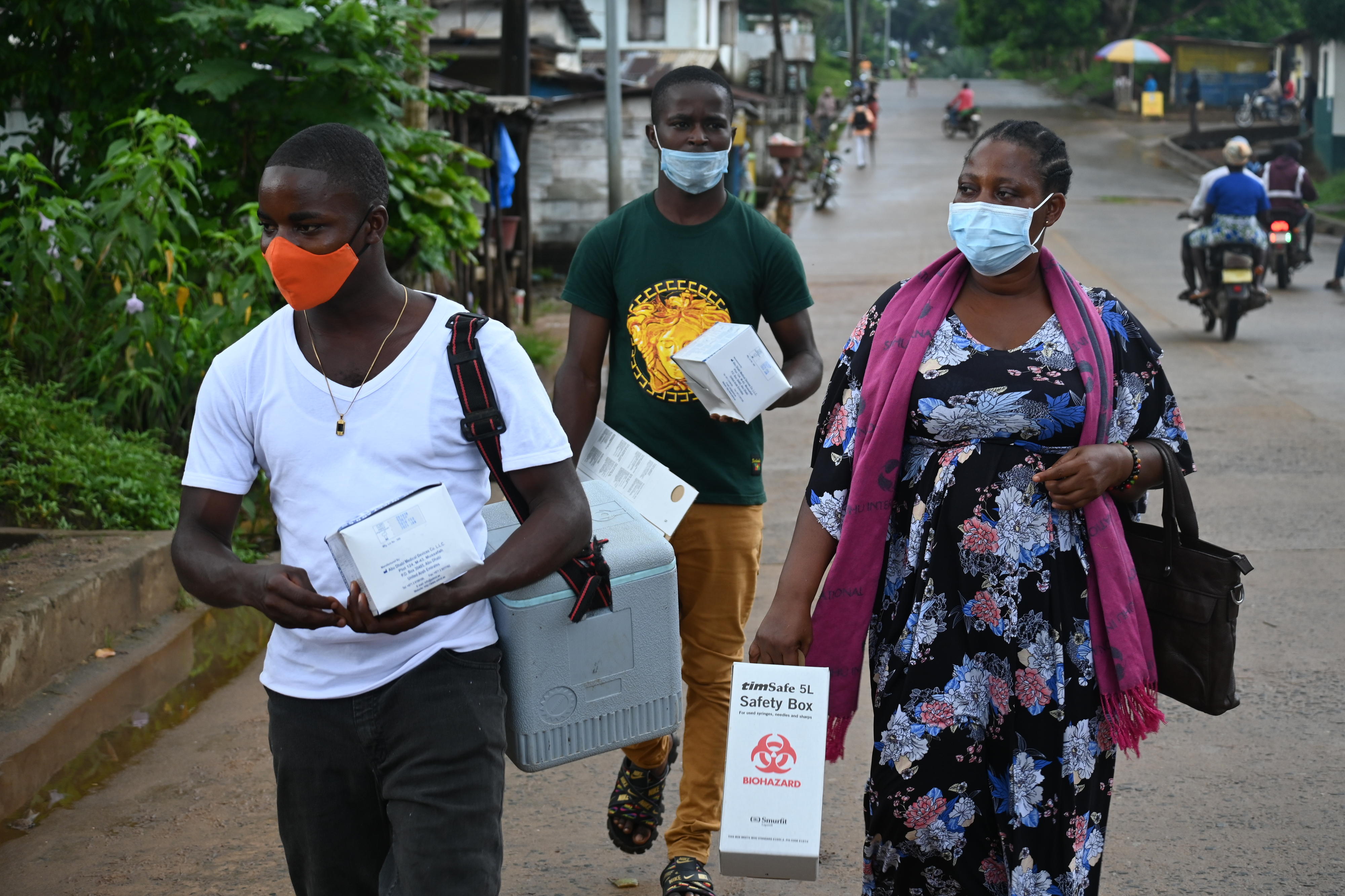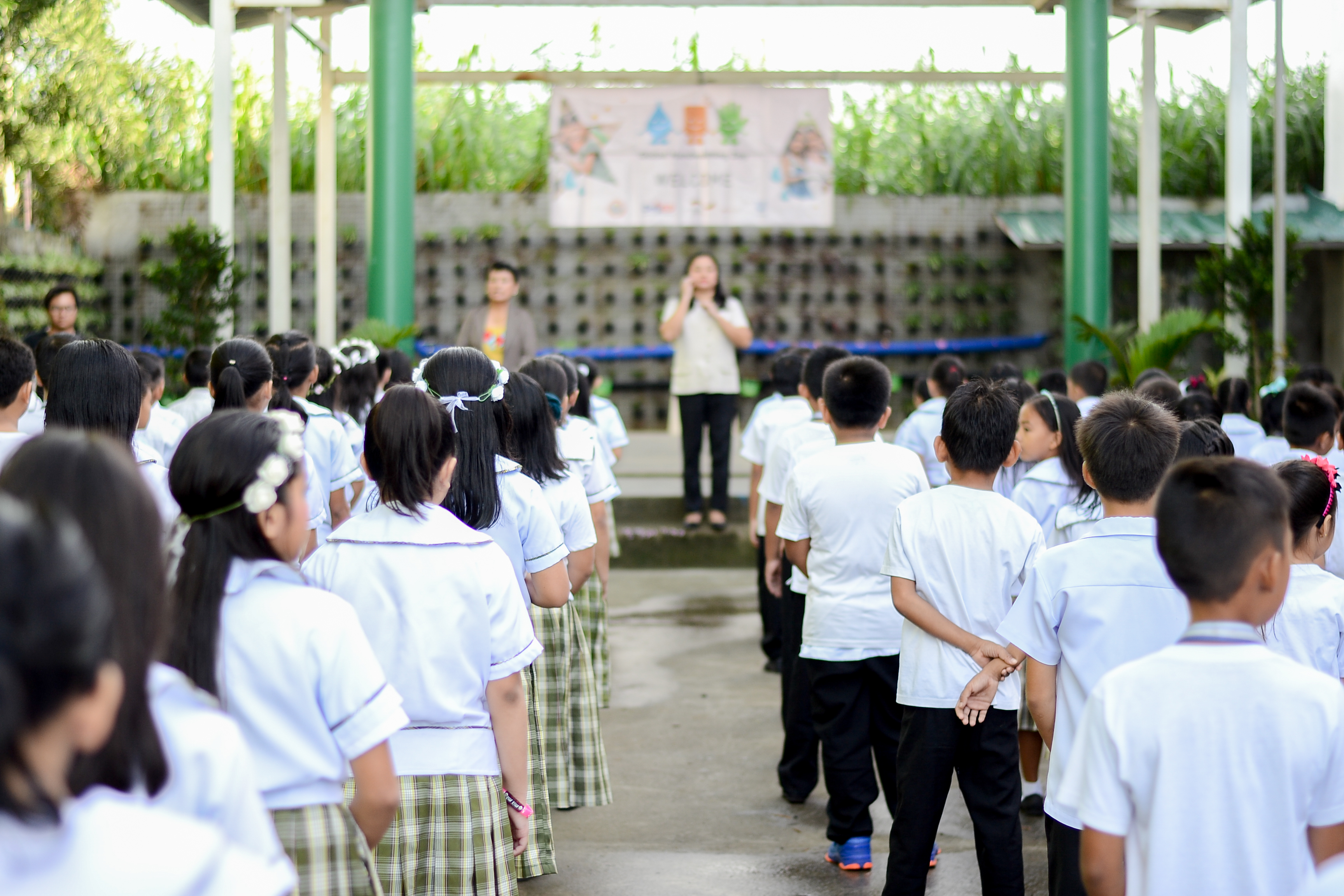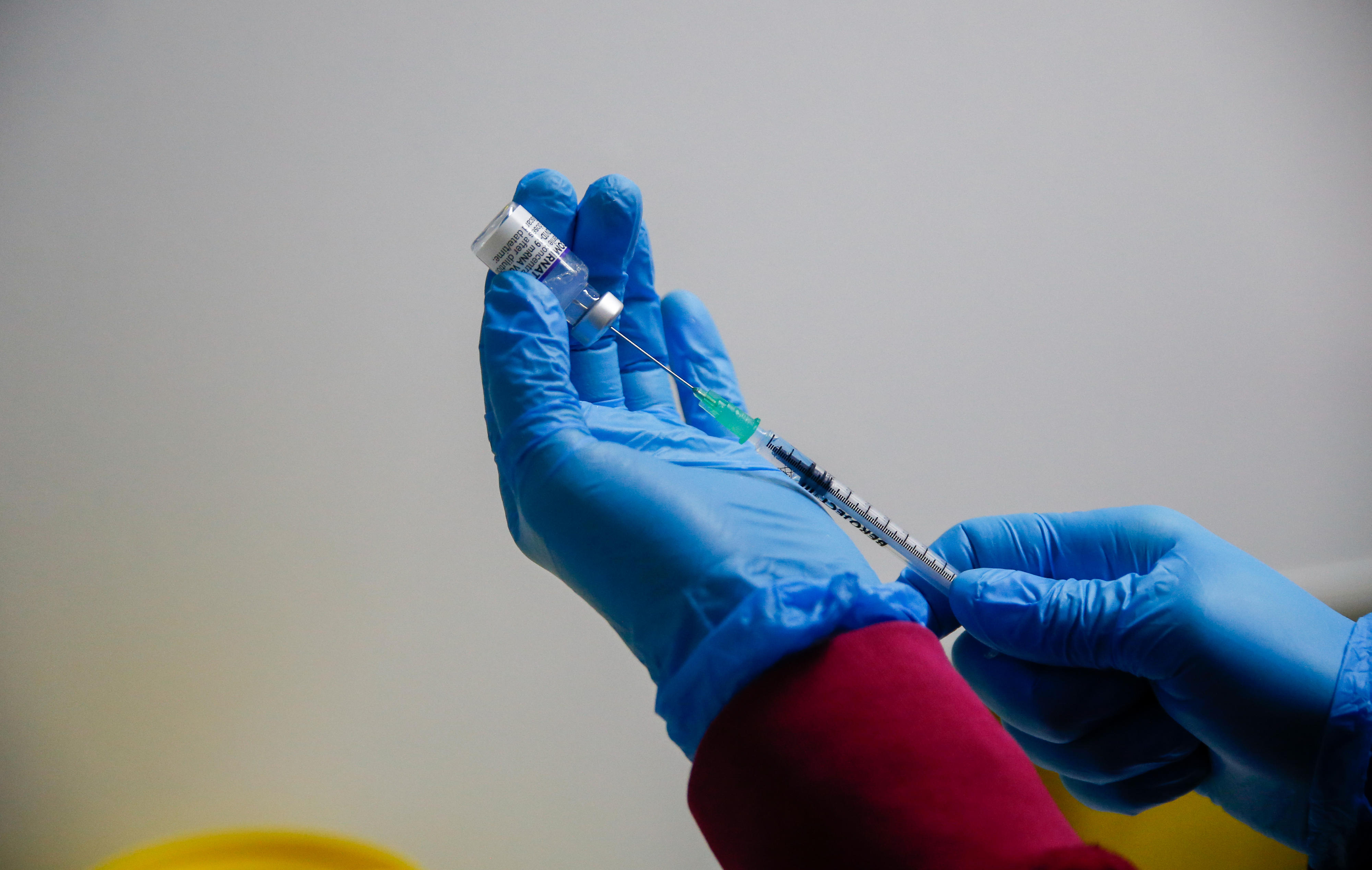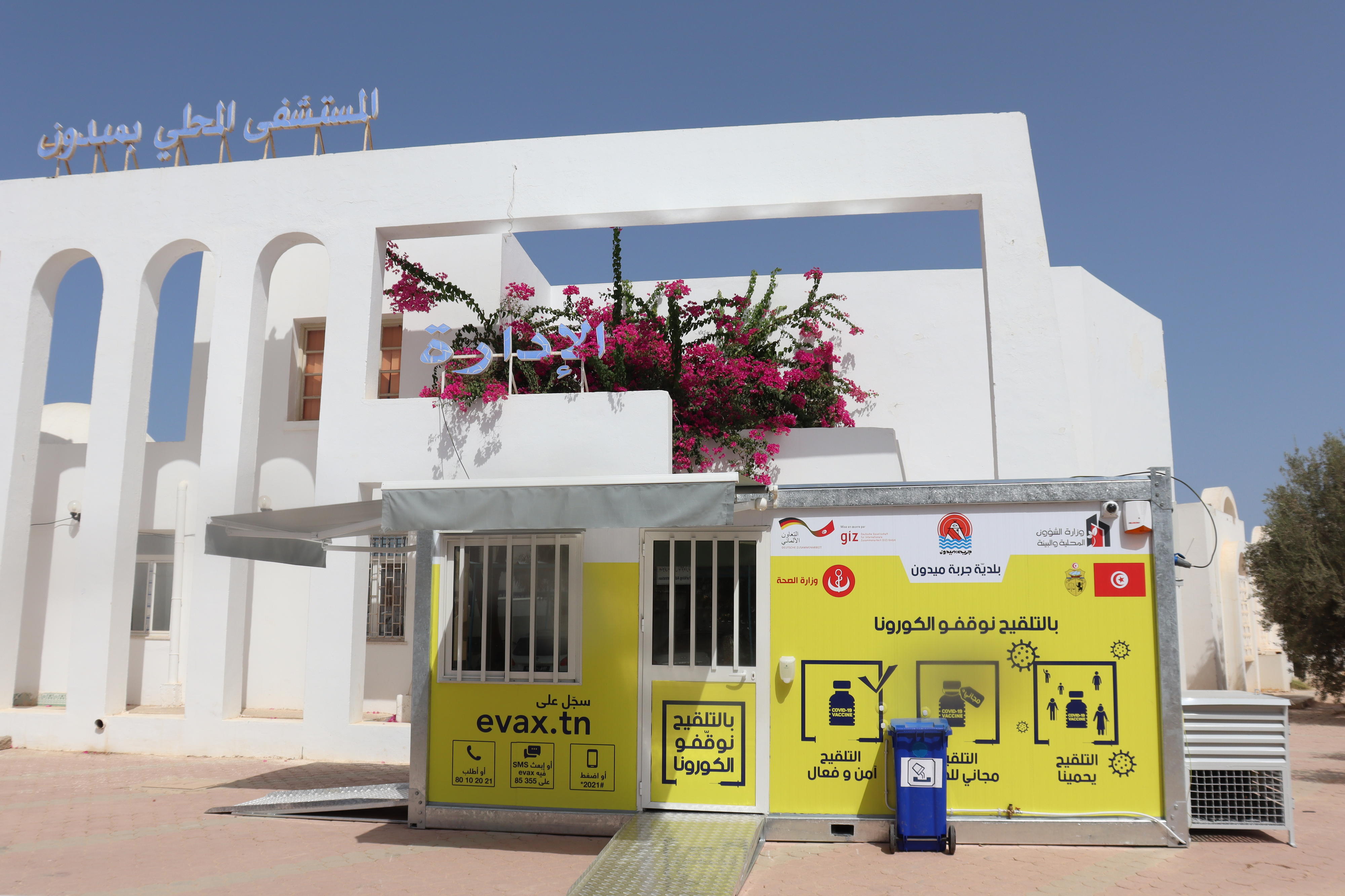Vaccination centre in Togo
Copyright© GIZ/Roger Gbekou
Special funds for vaccine logistics Bridging the last mile: How vaccines become vaccinations
The vaccines against COVID-19 are considered an important milestone in the efforts to contain the COVID-19 pandemic. The unequal distribution of the initially limited vaccine doses was much discussed in the international community. The vaccines mostly went to industrialised countries, with few being allocated to middle- and low-income countries. But after the pandemic had been going on for almost two years, it was no longer the availability of vaccines that was the biggest problem, it was their distribution.
The fact that vaccines do not reach the places where they are urgently needed is because of poor infrastructure and inadequate health systems. More than 30 countries worldwide are considered fragile, most of them are located on the African continent. The crises and armed conflicts on the continent make the distribution of vaccines almost impossible.
In remote areas, too, the chances of getting vaccinated are vanishingly small. The lack of a cold chain, electricity, medical records or medical personnel mean that vaccines and medicines with a short shelf life cannot be administered in time. In other areas, political missteps and misinformation which lead to vaccine scepticism are obstacles to providing an adequate supply to the population.
Vaccines spoil within a few hours
Almost all vaccines must be continuously cooled. Once diluted vaccine doses have thawed, they must be injected within six to eight hours. This is impossible in many countries of the Global South.
In response to this situation, Germany co-founded the coordination mechanism “Access to COVID-19 Tools Accelerator” (ACT-A (External link)) in April 2020, in the early stages of the COVID-19 pandemic. With a contribution of three and a half billion euros, Germany is currently the mechanism’s second largest donor. A large part of these funds has been channelled into the international vaccine platform COVAX, which has distributed more than 1.9 billion vaccine doses worldwide.
Nevertheless, the global vaccination rate has fallen short of expectations. The African continent is particularly affected, with an average vaccination rate of only 17 per cent. However, the differences between the countries in Africa are enormous: while almost 90 per cent of the population in the island state of Mauritius have been vaccinated at least once against COVID-19, the rate is just under 13 per cent in the Democratic Republic of the Congo. The lowest vaccination rate worldwide is in Burundi – there, the vaccines have reached only 0.3 per cent of the population (as at March 2023).
How the vaccine gets to the people
In order to rapidly increase global vaccination rates, Germany launched the “Last-Mile Initiative” during its G7 presidency in 2022. More than 30 partner countries, especially in Asia and the Middle East, have been technically, logistically and financially supported by Germany in the context of the initiative. Around 850 million euros has been provided to finance medical equipment such as medical devices, test materials and protective clothing, to establish cold chains and to create laboratories and warehouses. In addition, health personnel has been trained on site. Awareness campaigns have been run in order to counter widespread disinformation and vaccine scepticism.
The funds were largely distributed via partner organisations of the international cooperation platform ACT-A. In addition to these contributions, Germany provided 239 million euros for bilateral projects and direct support for vaccination campaigns on site.
The Federal Ministry for Economic Cooperation and Development (BMZ) supports more than 30 projects with a total of 174 million euros from the Last-Mile Initiative. Twenty of these projects are located in Africa. In Tunisia, for example, GIZ provided six mobile vaccination containers on behalf of the BMZ, which can be moved from one part of the city to another, as early as 2021. More than 20,000 people have been vaccinated in these containers. In 2022, solar-powered electric tricycles (e-trikes) were purchased. They can bring the vaccines not only to urban districts but right up to the door step.
In South Africa, KfW has invested 14 million euros in the vaccination campaign of the local Ministry of Health. In the provinces of Gauteng, KwaZulu-Natal and Western Cape, mobile vaccination teams have been equipped with buses to bring health services to remote parts of the country. Thus Germany’s Last-Mile Initiative is benefiting not only city dwellers but above all people who are otherwise hard to reach.
As at: 17/10/2023
